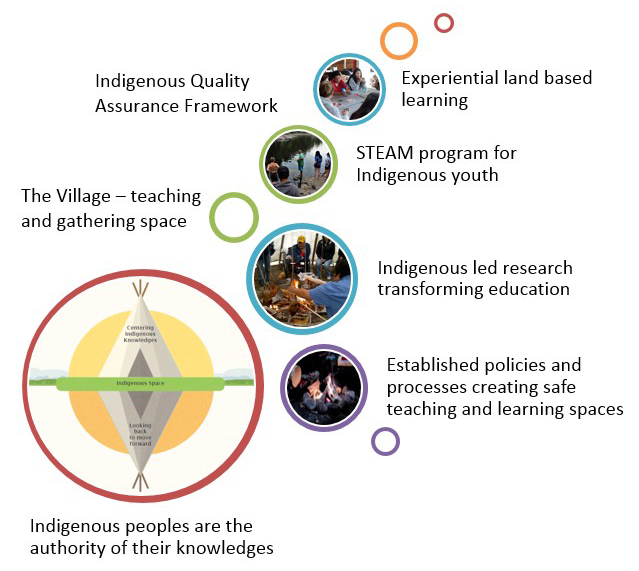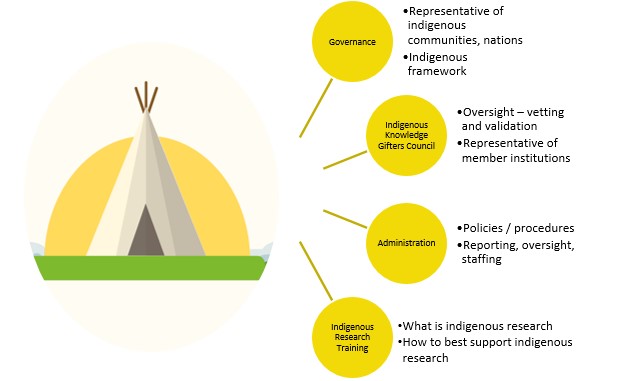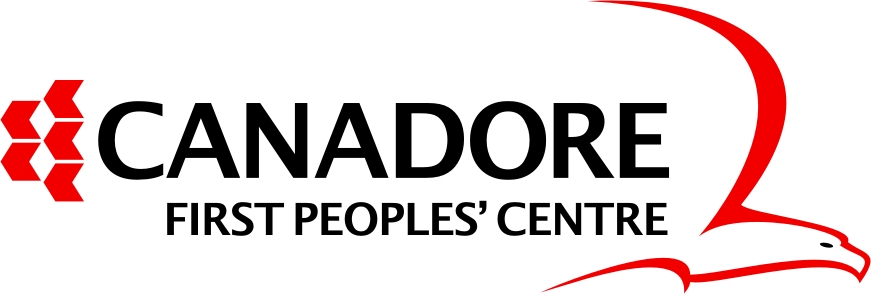Transforming Indigenous Peoples Inquiry (TIPI)
A Learning & Training Indigenous Research Hub
The spirit of the 8th Fire inspired this work, despite a destructive story, we have persisted and are awakening to a new dawn; it is a time of reclamation and the right time to do the work of Spirit.
Each year, Canadore College welcomes approximately 700 Indigenous learners to our three campuses in the City of North Bay, located on the traditional territory of Nipissing First Nation and on lands protected by the Robinson-Huron Treaty of 1850. Our satellite campus in Parry Sound is located on the traditional territory of Wasauksing.
Nearly 30 percent of Canadore’s total on-campus population celebrates Indigenous heritage from diverse nations. Hundreds more, stay in their communities to pursue our community driven programs of study.
The First Peoples’ Centre offers comprehensive cultural and academic support for Indigenous learners attending Canadore and reaches out to many more through recruitment, community outreach, promotion and industry partnerships.
Responding to the needs identified by Indigenous communities and Industry partners, the First Peoples’ Centre is excited to launch Transforming Indigenous Peoples Inquiry (TIPI): Ontario’s Leading Indigenous Learning & Training Research Hub, located in our state of the art Village at Canadore College.
This Hub will animate the spirit of gathering and sharing knowledge in a good way – and offers all the tools needed to make this good work happen. It is a safe gathering space, where Indigenous researchers can develop and strengthen relationships and expand Indigenous research knowledges. It provides administrative and structural processes needed to carry out this work grounded in indigenous ways of knowing and doing.
A Culturally Relevant Learning & Training Indigenous Research Hub
Our Hub is founded in Indigenous Quality Assurance Standards; ensuring research practices are reflective and accountable to Indigenous communities. This means our Indigenous Research Council and our Indigenous Knowledge Gifters Council will be representative of diverse nations/partners and will play a key vetting and guidance role in all research activities, including ethics and transference rights. We work to articulate a fully indigenous research agenda, from conception to transference (mobilization).
Transforming Indigenous Peoples’ Inquiry (TIPI) - Learning & Training Indigenous Research Hub
The Hub focuses on four key domains:
The governance framework reflects the indigenous nations and organizations that the Hub serves. They each play a critical role in the administration, oversight and governance of the Hub, directed by a policy framework reflective of Indigenous ways of knowing and doing.
Indigenous Research Council and Indigenous Knowledge Gifters’ Council serves in a capacity of oversight in the vetting of Indigenous research concepts, methodologies and engagement. The IKGC also provides review and validation of Indigenous knowledges in inquiry.
Administrative processes including corporate and research policies are developed to support and protect Indigenous Knowledges in inquiry related practice, ensuring that recruitment, remuneration, procurement, evaluation and assessment, dissemination of inquiry related processes are respectful, reciprocal and rooted in the tenets of UNDRIP, OCAP and in keeping with IQAS.
Indigenous research training is critical in the role of the Hub as it helps to ensure that research being carried out in and with Indigenous communities is being done so in culturally safe ways; and that not only are researchers being trained to conduct research in culturally safe ways but that individuals and communities part taking in and/or leading research are informed, being supported to help build their own research capacities and able to engage in meaningful and sustainable approaches within the research and beyond.
